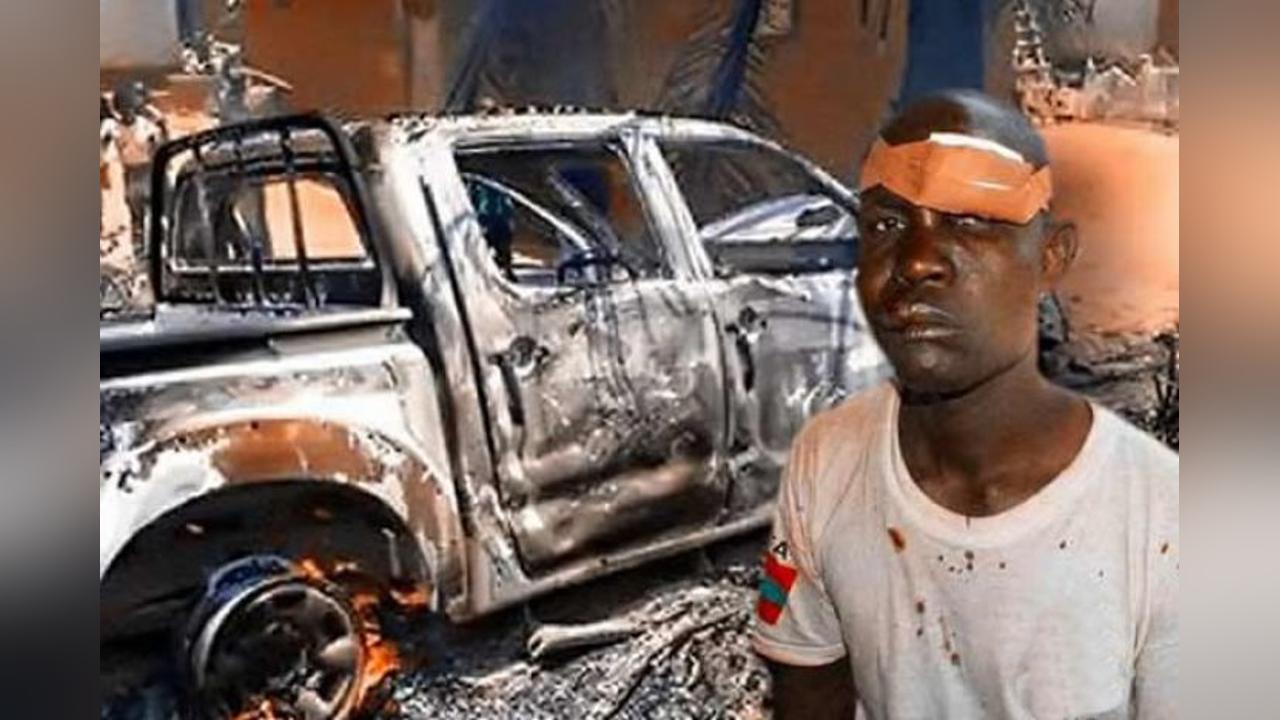By Florindo Chivucute
Africa-Press – Angola. Less than two years before the 2027 general elections, Angola is already experiencing a worrying increase in acts of political intolerance and violence against activists and opposition figures. Recent episodes demonstrate that the political environment is deteriorating, threatening the fragile democratic coexistence achieved after decades of conflict.
On April 28, 2025, a tragic case of violence shook the national political community: the UNITA secretary in Sequele was murdered at point-blank range inside his home, in the dead of night. According to the Angola24Horas portal, witnesses stated that the attackers broke down the door of the victim’s house and shot him without warning, in an act extremely interpreted as yet another crime of political intolerance.
A few weeks later, on May 29, 2025, another violent attack was carried out in the municipality of Ngalanga, Huambo province, against a UNITA delegation led by prominent figures, including General Apolo Felino Pedro Yakuvela. The delegation was brutally attacked by a group of more than 150 individuals identified as MPLA militants, armed with sticks, stones and machetes. The incident, which occurred a few meters from the Municipal Command of the National Police, left at least seven people injured and did not result in the disappearance of a member of the delegation. The visit had already been previously communicated to the provincial and municipal authorities.
These acts of violence are not isolated cases, nor are they exclusive to this electoral cycle. Angola has a history of political repression dating back to the 1992 elections, when thousands of UNITA supporters were persecuted and killed in Luanda and other provinces after the collapse of the electoral process. In 2017, reports of violent clashes between MPLA and UNITA supporters emerged in Benguela, Huambo and Cuanza Sul. In the post-election period of 2022, observers from the European Union and Angolan civil society denounced the repression of protests, arbitrary arrests of activists and intimidation of electoral observers, especially in opposition strongholds such as Cacuaco, Viana and Bié.
The pattern is recurrent: a state that does not behave as an impartial judge, security forces instrumentalized to protect partisan interests and a political culture still rooted in the logic of the single party. The Ngalanga case exposes not only the brutality of the attackers, but the complicity – or negligence – of the authorities who failed to prevent the attack, even following some steps from the scene of the incident.
This escalation of violence confirms the fragility of Angola’s democratic institutions and the lack of a real commitment to free, fair and safe elections. When opposition activists cannot move freely, visit communities or hold public events without fear of aggression, democracy ceases to be a functional reality and becomes a political theater where repression dictates the rules of the game.
With two years to go until the next elections, Angola is at a crossroads. We can continue to pursue the path of intimidation, impunity and political exclusion — or we can, with courage and responsibility, fully embrace the principles of plurality, mutual respect and equal participation.
Democracy is not built with stones and machetes. It is not fueled by persecution or fear. Where there is political violence, there is no freedom — and where there is no freedom, there can be no democracy.
For More News And Analysis About Angola Follow Africa-Press






